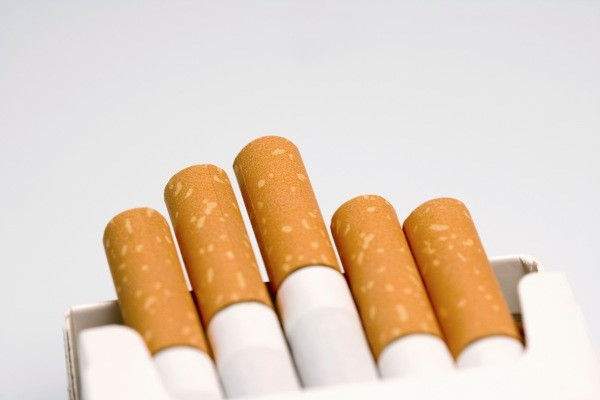Op-Ed: Menthol Milestone - The anniversary no one is celebrating
- INFO-MD Staff
- Mar 4, 2019
- 4 min read

In California, 70% of African American adult cigarette smokers smoke menthol - the highest usage rate of any group. The truth behind the smoke is that the tobacco industry is working hard to prevent sales bans.
2019 marks 10 years since the passage of the Tobacco Control Act (ACT) - an historical piece of legislation that banned flavored cigarettes, except menthol. Menthol cigarettes are the main reason why African American communities experience the greatest burden of tobacco-related mortality of any racial or ethnic group in the United States.
Coming of age in the 1970s, I can still vividly remember seeing Marvin Gaye at the Kool Jazz Festival at the Oakland Coliseum and thinking how wonderful it was that Kool cigarettes were supporting our artists. I was a teenager and didn't connect that Big Tobacco's sponsorships, product giveaways, and money were simply part of their master plan to get and keep Black people hooked to menthol cigarettes. It was predatory targeting and customer recruitment all dressed up as support for the Black community. Their ability to link this deadly product to the natural "coolness" of Black people was a true marketing triumph.
Menthol has been the tobacco industry's recruitment tool for far too long. It has been added to cigarettes for nearly a century, masking tobacco's harsh flavor, making the smoke feel smoother and easier to inhale - but that ease comes with a price. The smoothness of menthol allows smokers to inhale more deeply, so harmful particles can settle lower in the lungs. Menthol cigarettes are also harder to stop - people who use menthol cigarettes have a lower rate of successfully quitting.
2019 marks 10 years since the passage of the Tobacco Control Act (ACT) - an historical piece of legislation that among other things, banned flavored cigarettes, all flavors except menthol. While the Act was intended to stop the tobacco industry from using the allure of sweet, enticing flavors to hook a new generation to cigarettes, it failed to do one important thing. Stop the sale of menthol-flavored cigarettes.
Yes, the Tobacco Control Act was a huge victory for all of us who had worked for decades to combat the tobacco industry, but exempting menthol cigarettes from the initial legislation was a heartbreaking setback and anyone who loved Black smokers knew it.
Big Tobacco would like us to believe that this exemption was preserving smokers' choice, particularly for communities of color, who have higher rates of using menthol cigarettes. For example, in California, 70 percent of African American adult cigarette smokers smoke menthols - the highest usage rate of any group. Big Tobacco is using choice as a smokescreen to hide the fact that menthols are one of their best tools to addict new customers, and they refused to let it, and Black people, go.
Let's look at what's really going on. Since the Tobacco Control Act was signed, although cigarette use has declined in the U.S. in recent years, sales of menthol cigarettes have steadily increased, especially among young people and new smokers, essentially having the opposite effect the Tobacco Control Act intended!
The milestone we should be celebrating are the more than the 320,000 deaths that would have been averted by 2050 had the menthol cigarette ban gone into effect in 2011. And though Black folks are only ten percent of the U.S. population, a third of those saved lives would have been African Americans. This huge disparity is a testament to the effectiveness of the decades of predatory tobacco industry targeting that we have endured. Menthol cigarettes are the main reason why African American communities experience the greatest burden of tobacco-related mortality of any racial or ethnic group in the United States. Smoking-caused illnesses continue to kill more African Americans than AIDS, car crashes, murders, drug and alcohol abuse combined.
It's important to note that menthol sales bans do not criminalize individual people who smoke menthol cigarettes or punish smokers targeted by the tobacco industry for decades to use these deadly products - they are merely aimed to prevent their sale. The truth behind the smoke is that the tobacco industry is working hard to prevent sales bans - It's estimated that the industry's contributions to the African American community is as high as $25 million per year. I hope that our people have more information now than they did in the seventies and that they know what the tobacco industry is really trying to buy...our future.
Make no mistake, this year we have an opportunity to take a major step forward in protecting our state's health -- one that's 10 years in the making. Banning the sale of menthol cigarettes is a strong message from our elected officials that our cities will no longer participate in the sale and distribution of these deadly products. Let's not miss this chance to get rid of menthol cigarettes for good.
To learn more about menthol visit www.tobaccofreeca.com.

Carol McGruder is Project Director of the African American Statewide Coordinating Center Ms. McGruder is a seasoned veteran of California's tobacco control experience and has served as an advisor in many capacities, most recently as a founding member and Co-Chairperson of the African American Tobacco Control Leadership Council (www.savingblacklives.org). In 2017, the San Francisco National Association for the Advancement of Colored People honored Ms. McGruder for her community activism. She is a recipient of the prestigious Jefferson Award for community activism in tobacco control and in 2007 she was the American Legacy Foundation national honoree for "Community Activist of the Year."
